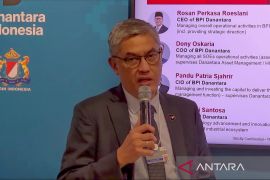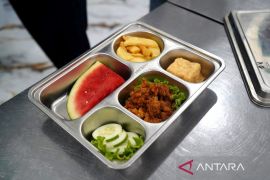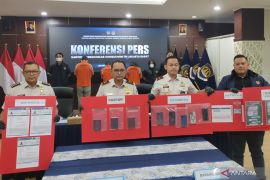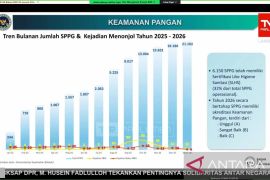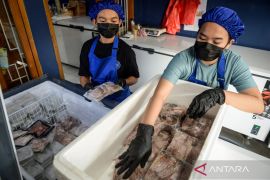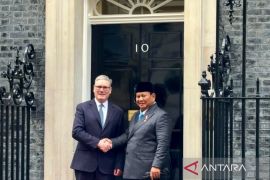"Due to the distribution chain, it takes a long time for the product to reach its destination. That also automatically increases the logistics costs," Adhi S Lukman, the Chairman of Food and Beverage Industry Association (BPMMI)said.Jakarta (ANTARA News) - Indonesia`s food and beverage industry is ranked 50th in a global survey, much below those of Malaysia, Brunei Darussalam and Thailand, because of high logistics costs and a long distribution chain, according to a food industrialist.
"The Indonesian food and beverage industry ranks 50th in competitiveness on the list, much below its main competitors such as Malaysia (25th), Brunei Darussalam (28th) and Thailand (38th)," said Adhi S Lukman, the Chairman of Food and Beverage Industry Association (BPMMI), here on Monday.
"Due to the distribution chain, it takes a long time for the product to reach its destination. That also automatically increases the logistics costs," he noted.
As a result, Adhi added, the food and beverage products' costs rose by 15 percent and their competitiveness diminished.
"In South East Asian nations, the average annual increase in the food and beverage products is only about 7 percent, even in Japan it is only 5 percent," he pointed out.
Adhi stated that the food and beverage industry's trade deficit had been widening because of the industry's reduced competitiveness.
"Last year, the trade deficit in this sector reached US$908 million. According to GAPMMI data, the industry's trade deficit, up to May 2012, reached US$170 million, lower than the US$360 million recorded during the same period last year," he noted.
Last week, Adhi said Indonesia needed to have adequate number of food standardization laboratories in order for the food and beverage industry to improve the quality of its products.
In striving to meet the 2015 ASEAN Economic Community (AEC) targets, he added, Indonesia continued to face a shortage of food standardization laboratories necessary for the successful implementation of the AEC's food standardization plan.
"We still have a lot to do, including having more food standardization laboratories that are accredited at the ASEAN level," Adhi stated.
He said there were 66 accredited food laboratories in Indonesia, but the numbers are not enough because ideally each district in the country must have such a laboratory.
"Indonesia has 500 districts across 34 provinces. Each district should ideally have one laboratory. In order to meet the requirements of the AEC, we need to first increase the standardization of some of our commodities, such as candies, bakeries, chocolates and cereals. Other commodities should follow after that," Adhi added.
He said the country's major players in the food and beverage industry were ready to follow the AEC's standardization plan. However, Adhi pointed out, smaller industries might not be ready yet for producing export-quality products.
"Some 60 percent of the country`s F&B industry is ready to implement the AEC standardization plan. But the problem is that there are about 1 million smaller players whose products are not yet ready to meet the ASEAN standardization requirements," he explained.
Adhi expressed hope that the government would help the domestic food and beverage industry boost its competitive edge. In 2014, ASEAN member states will meet to discuss the implementation of the food standardization plan.
"We should not repeat the mistake we made with the China Free Trade Agreement (ACFTA)," he said, adding that the food standardization plan would be implemented at the beginning of 2015.
Food and beverage producers, both large-scale and small-scale, must be ready to comply with the standardization regulations.
"The government and business players must cooperate in raising awareness about the regulations," Adhi stated.(*)
Editor: Heru Purwanto
Copyright © ANTARA 2012
